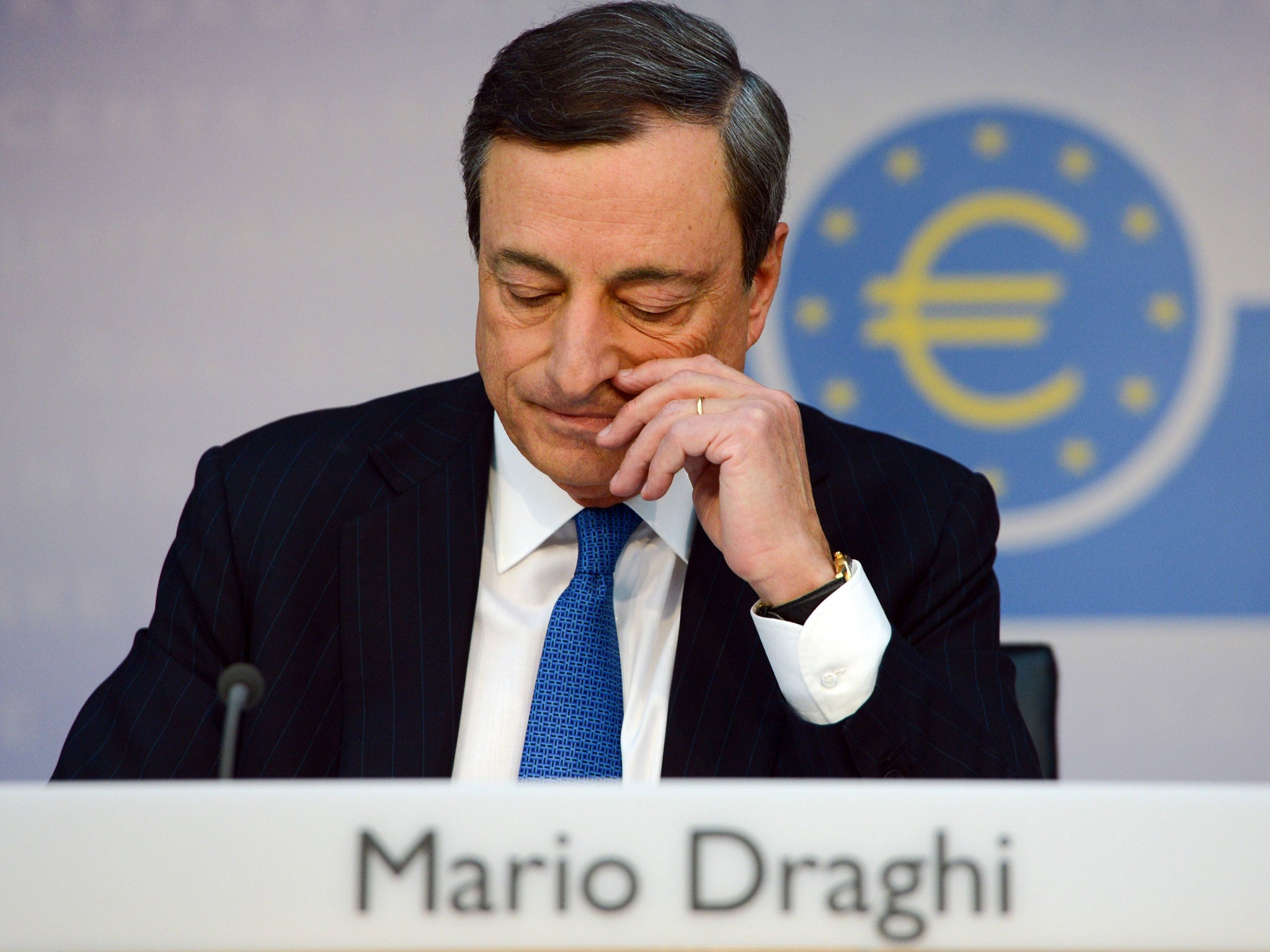Financial markets yesterday placed bets on the European Central Bank (ECB) launching its own emergency bond-purchase programme before the end of the year in order to boost prices and growth in the weakening euro area.
The single currency slumped to $1.3198 yesterday, its lowest level against the dollar in almost a year, amid further poor economic data from the eurozone and signs that political dissent over the setting of macro-economic policy is bubbling over.
Speaking at the Jackson Hole central bankers’ summit in Wyoming last Friday, the ECB president Mario Draghi sent his strongest signal yet that it will follow the US Federal Reserve, the Bank of England and the Bank of Japan in launching a programme of quantitative easing.
“The foreign exchange market has interpreted Draghi’s statement as meaning that broad-based asset purchases ... [have] now become more likely,” said Lutz Karpowitz of Commerzbank.
“We think the recent economic developments have increased the chance of outright QE as the next step,” said Philippe Gudin of Barclays.
The price of sovereign bonds of nations in the eurozone periphery rose in anticipation of an asset-purchase programme. Ten-year Portuguese bond yields – which move inversely with prices – fell 20 basis points to 3 per cent. Italian yields declined by 11 basis points to 2.46 per cent, while in Spain they fell 12 basis points to a record low of 2.239 per cent. Last week analysts at Citigroup predicted that the ECB will launch a $1 trillion asset-purchase scheme in December.
Mr Draghi also surprised the markets when he told the summit last week: “It would be helpful for the overall stance of policy if fiscal policy could play a greater role alongside monetary policy, and I believe there is scope for this.”
Economists said this represented a significant change of tone from Mr Draghi, who has long urged member state governments to focus on deficit reduction and structural reform rather than stimulus.
There are signs national politicians are also pushing for a change of course on fiscal policy. The French Government was dissolved yesterday after the Economy Minister, Arnaud Montebourg, called for an end to austerity measures and criticised the German Government’s “obsession” with spending cuts. A spokesman for Angela Merkel’s office was forced to deny there is any rift between Berlin and Paris. The new Italian prime minister, Matteo Renzi, has also voiced criticism of the deficit-reduction demands of Berlin and Brussels.
The latest reading from the German IFO Business Climate Index yesterday confirmed that the weakness of the eurozone has now gripped the core. The index fell to 106.3 in August, down from 109 the month before. The chief economist of the IFO Institute, Klaus Wohlrabe, said he was likely to cut the 2014 GDP growth forecast for Germany from 2 per cent to 1.5 per cent.
The eurozone inflation rate fell to just 0.4 per cent in July, well below the ECB’s target of just below 2 per cent. Deflation has already taken hold in Greece, Portugal and Spain. Annual inflation was zero in Italy over the month. Figures for August will be released on Friday and the ECB will take a decision on asset purchases early next month.
Subscribe to Independent Premium to bookmark this article
Want to bookmark your favourite articles and stories to read or reference later? Start your Independent Premium subscription today.


Join our commenting forum
Join thought-provoking conversations, follow other Independent readers and see their replies